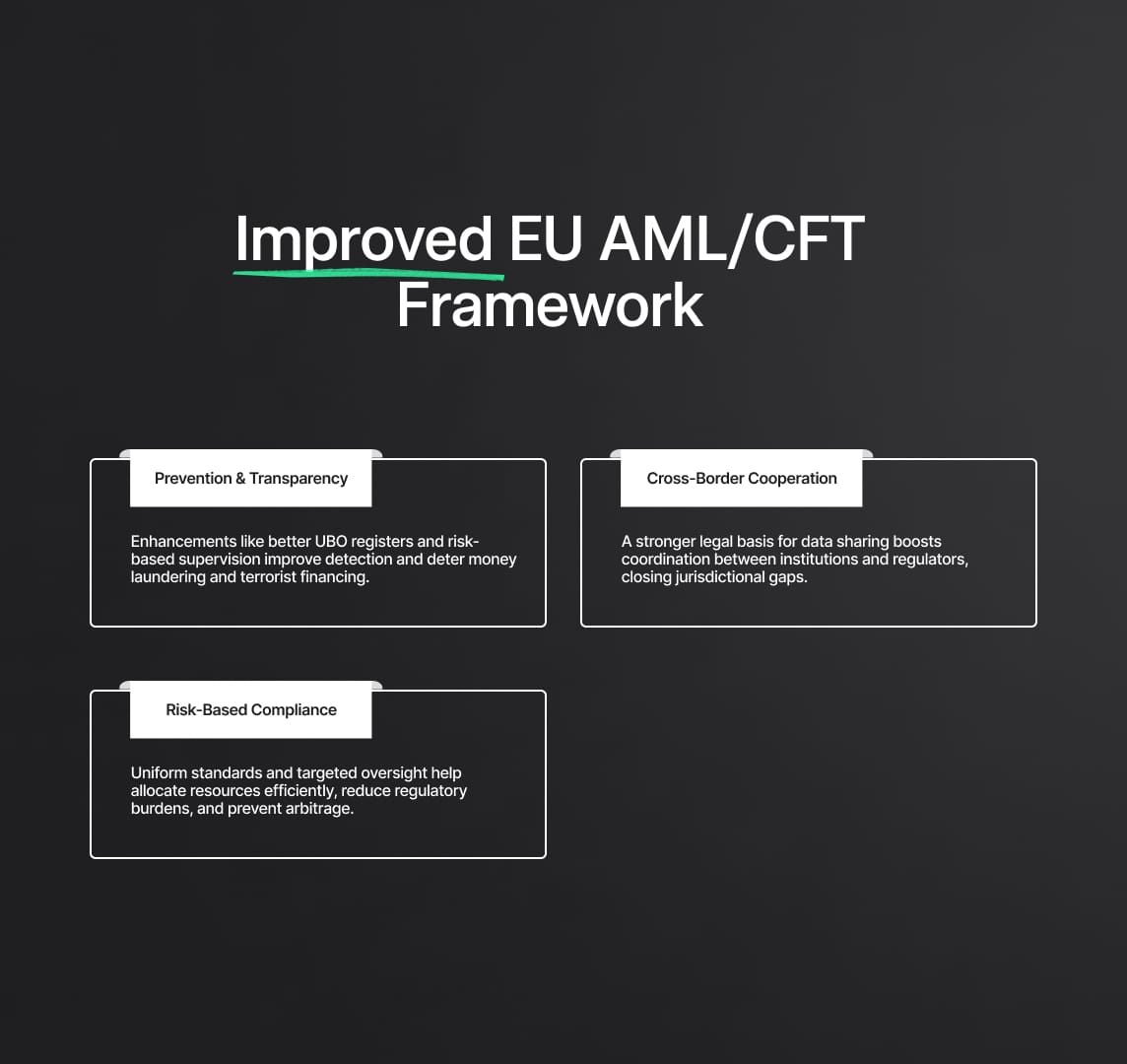AML/CFT Framework: EBF Statement
The EBF supports EU efforts to enhance the AML & CFT framework. It emphasizes the need for a secure legal basis for AML/CFT data exchange, data protection, and a risk-based approach in enhancing regulatory oversight.

EBF Supports Efforts to Improve EU AML/CFT Framework
The European Banking Federation (EBF) has stated that it fully supports the efforts of the European Commission and other legislators to enhance the efficacy of the EU's present frameworks for counterterrorism financing (CFT) and anti-money laundering (AML). The EBF thinks this is a rare chance to improve the framework and that it shouldn't be passed up. The group has researched the positions taken on the new AML Regulation, AML Directive, and Regulation establishing a new AML Authority in both the European Parliament and the Council. The EBF notes the need of having a strong legal foundation for sharing AML/CFT data along with the necessary controls to ensure data protection and applauds the recognition of the advantages of information sharing for AML/CFT purposes. The EBF emphasizes the need to develop the AML Authority's methodology for selecting obliged businesses under its direct supervision using a risk-based approach, and it also calls for a greater emphasis on the risk-based approach to updating client information.

Improved EU AML/CFT Framework
The improvement of the EU AML/CFT framework has several potential implications for the future. Firstly, it could lead to more effective identification and prevention of financial crimes, such as money laundering and terrorist financing, contributing to a safer and more secure financial ecosystem in Europe.
This, in turn, could foster greater trust in the financial system, encouraging more investment and economic growth.
The enhanced legal basis for exchanging AML/CFT data could facilitate better cross-border cooperation among financial institutions and regulators, leading to more efficient and coordinated efforts to combat financial crime. This could help prevent criminals from exploiting jurisdictional gaps and weaknesses in the system.
The emphasis on a risk-based approach in both customer information updates and the selection of obliged entities under direct AML Authority supervision could ensure that resources are allocated more effectively to address areas of highest risk. This could lead to more targeted and impactful actions against financial crime.
The call for stronger Ultimate Beneficial Owner (UBO) registers could increase the transparency and reliability of beneficial ownership information, making it more difficult for criminals to hide behind complex corporate structures. This could further deter illicit activities and enhance the overall integrity of the European financial system.
Lastly, the potential improvements to the EU AML/CFT framework could contribute to the harmonization of AML/CFT standards and practices across Europe, making it easier for financial institutions to comply with regulations and reducing the risk of regulatory arbitrage.
Reduce your
compliance risks

